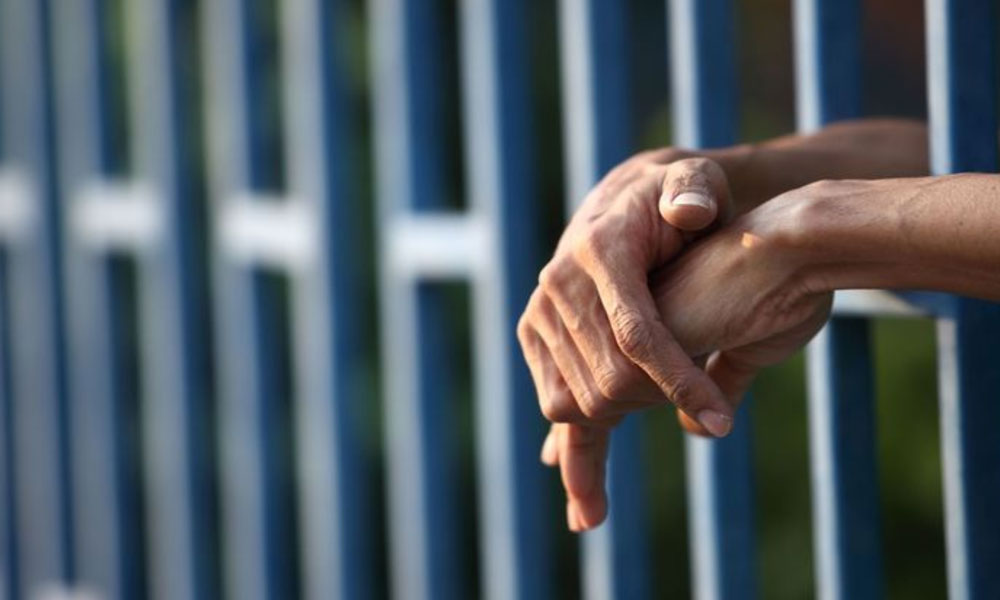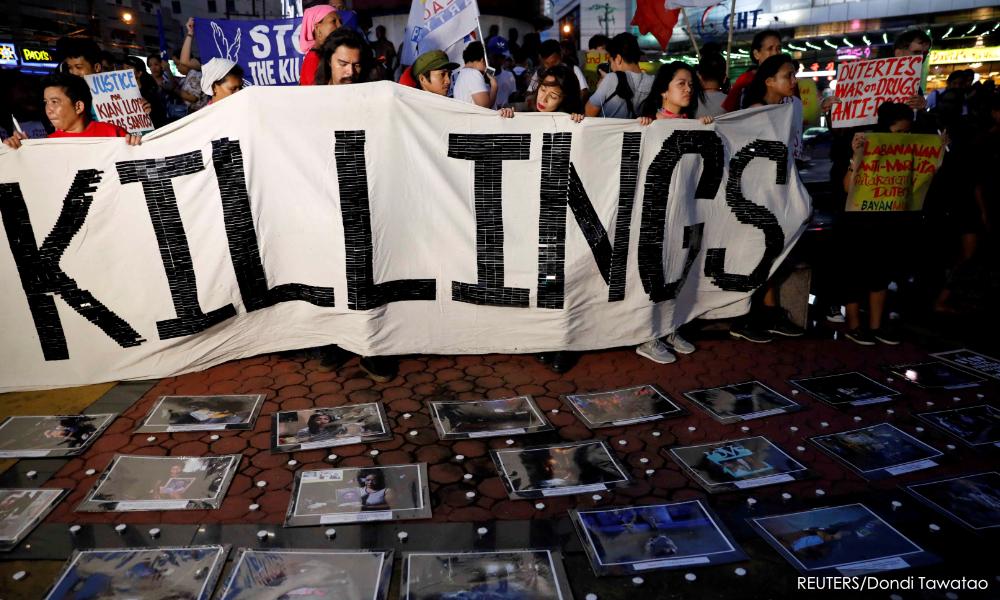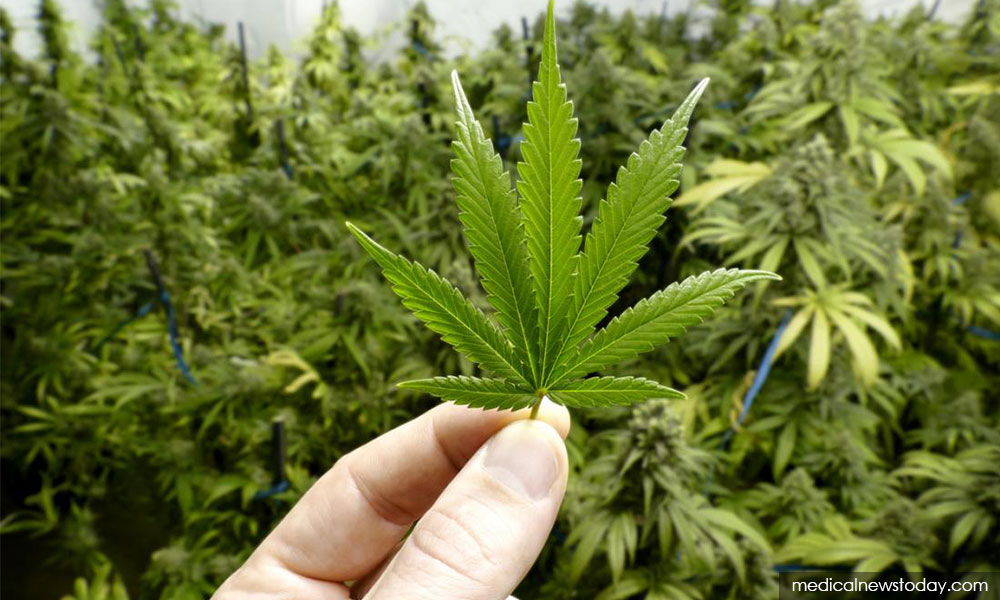War on drugs became war on poor and marginalised - Global Fund expert
When then US president Richard Nixon first coined the phrase "war on drugs" in June 1971, governments all around the world enthusiastically bought into the idea.
It was recognised that the presence of narcotics in society was a harmful one and it was generally accepted that a tough approach was needed.
Some 50 years on, it has been recognised that harsh measures, including the death penalty, did not have the desired effect and only resulted in many poor and marginalised individuals paying the price while drug lords continue to operate with impunity.
While many countries have chosen to liberalise their approach and treat drug addiction as an illness and not a crime, as well as to allow for the production of medical marijuana, Malaysia has yet to change any laws.
This is despite a number of promising initial policy changes announced during the Pakatan Harapan era.
Nonetheless, the topic has been resurrected in Parliament recently by Muar MP Syed Saddiq Syed Abdul Rahman and senior ministers such as Hamzah Zainudin and Azmin Ali have reacted positively to the idea of changing the laws.
'After war on communists came the one on drugs'
Johor native Palani Narayanan (above) is a senior advisor on drug use and harm reduction at the Global Fund and has worked on this issue in a number of capacities for three decades.
He was the co-founder of the first Malaysian Harm Reduction Programme for sex workers and drug users, the Ikhlas Centre and the founding chairperson of the Asian Harm Reduction Network (1997-2000).
"The Global Fund is a public health funding mechanism that operates in 128 countries, and we coordinate awareness and funding to prevent and treat HIV, tuberculosis and malaria.
"Since Covid-19 started we have also taken on funding to help combat the coronavirus. My role is in harm reduction and we are engaged in 55 countries," Palani told Malaysiakini in a recent interview.
He said that through his work, he has seen first-hand how harsh drug laws only victimise the poor.
"I am from a small town called Chaah in Johor. I grew up on a plantation and went to high school in Kluang. My mother was a live-in maid with 13 kids.
"In roughly 1992, I came to Kuala Lumpur and began working with Karen Radzi to help sex workers and people who use drugs on the streets of Chow Kit.
"We set up Ikhlas Centre - and it was clear that many who use drugs were constantly in trouble with the law."
Palani said this was because the government treated drugs as the number one enemy after the communists were defeated and this had really affected the lives of drug users.
"Most were in and out of rehab and prison - all it does is that they learn how to commit better crimes from hardened criminals. That's what we are doing when we put 18-year-olds in these drug rehabilitation centres," he added.

By not allowing recovering drug users to integrate into society or to hold down jobs or travel, Palani said we cement their marginalisation.
"I saw it firsthand then and I have since worked in the Philippines and Bangladesh and that understanding has only been strengthened by experiences around the world.
"I can tell you story after story. In some countries, street children use drugs as a painkiller because they are often beaten up for making mistakes when they do part-time work. There is a lot of desperation and no opportunities.
"In Tajikistan, 60 percent of the adult male population migrated to find work elsewhere and sometimes they don't return from Russia or wherever - then the single mothers who are left behind easily fall prey and become drug mules," he said.
"They are desperately poor and they are the ones who are caught and put in prison," he added.
Drug policies in Asean
The Philippines government of President Rodrigo Duterte has courted much criticism after the implementation of a severe crackdown.

This past week, Justice Minister Menardo Guevarra said his department would expand its review to the more than 6,000 killings that occurred during police operations since the crackdown began.
"The first thing that I want to say is that it's fantastic that the Noble Peace Prize was given to Maria Rezza of Rappler. She rightly deserves it because she was brave to highlight the true impact of the war on drugs.
"And to show that just because there is a severe crackdown it doesn't mean that there are less drugs and less crime," Palani said.
He said that in most Asian cultures there is an expression - "to kill the snake you must cut off the head".
"But what we see in reality is that police and law enforcement around the world go after the small fry and the end-users. And they are the ones who end up being in prisons or death row.
"So it becomes a war on poor people," he added.
Palani pointed out that poor people have no access to human rights lawyers and are tossed into overcrowded prisons that further spread infections and increase crime.
He added that this happens around the world with minority groups too and that the racism underlying drug wars in the US and Brazil were well documented, with law enforcement tending to focus on urban areas, lower-income communities and people of colour.
Interestingly, neighbouring Thailand has made an about-turn from having harsh laws to decriminalising and promoting the medical marijuana industry and Palani cites it as a positive example.
"I think it's incredible. Kudos to the Thai government for looking at it practically. They were able to look at the science, talk to researchers and evaluate the cost to the economy of having harsh laws.
"One of the things that supported the change of policy and laws in Thailand was that many were favourable to the move and that encouraged the government to do the right thing.
"It makes a huge difference to many peoples' lives. Now those who are carrying it (marijuana) for loved ones don't have to do it in fear and the industry can grow and thrive," he said.
Urgent need to change laws
There have been positive developments of late in Malaysia and MPs from both sides of the aisle have banded together to form a bipartisan caucus to study regulations and form policies for the medical use of marijuana and ketum.

The caucus consists of nine members and is chaired by Syed Saddiq and also includes Azalina Othman Said (BN-Pengerang), Khalid Ibrahim (Pakatan Harapan-Shah Alam), Dr Xavier Jayakumar (Independent-Kuala Langat), Darell Leiking (Warisan-Penampang), Dr Kelvin Yii (Harapan-Bandar Kuching), Dr Azman Ismail (Harapan-Kuala Kedah), Lukanisman Awang Sauni (GPS-Sibuti) and Ahmad Fadhli Shaari (PN-Pasir Mas).
But still, just last month a couple was found with cannabis cookies and could face the death penalty. This highlights that for all the positive discussions and feedback, the laws are still decades behind.
"If you ask me, we should have made the change about 20 years ago. The evidence that the war on drugs is futile is there.
"Instead, we have been spending more on enforcement, police time, human rights violations and not bringing down the problem.
"It's urgent to do it now. The science is there - with cannabis oil and edible marijuana we have increasing evidence of their role in reducing pain. (It also helps) with multiple sclerosis and nausea for those on chemotherapy, reducing anxiety, PTSD, epilepsy - there are many examples," Palani said.
Despite the scientific information, marijuana is still criminalised and there are so many hoops to jump through to do research, he added.
'We can debate all night - some claim lack of evidence despite increasing evidence - but the most important thing is that criminalising the way we do now makes no sense from an economic perspective, in terms of lowering crime and in terms of helping addicts heal."
Healing mentality a critical step
Palani called for a change of mindset which he said is key.
"We must change the mentality of looking at the issue. For example in Portugal, people who are caught below a threshold level are given an administrative fine.
"They are not sent into the criminal system. They go through a parallel system that assesses your drug use, gives you support and counselling.
"This threshold amount in Portugal is something like 10 ecstasy pills or three to five grams of heroin. If it's more than that amount then you are treated as a dealer," he said.
This has reduced the prison population, he said, and this system allows addicts to be treated without stigma, vastly increasing the chances of rehabilitation.
Palani also challenged the gateway drug theory saying it has been debunked by many researchers, adding that it is a theory based on perception but not lived experience or science.
He urged the government to decriminalise all drugs for use and personal possession.
"This means that when someone is caught with a small amount of drugs (below a threshold level), they should not be sent through the criminal justice system and end up incarcerated.
"Instead, we should develop a civil administrative procedure where their drug use is assessed and they are either made to pay a fine if their possession amount is very small or receive treatment if their use is getting problematic," he said.
In this way, Palani said we will reduce the prison population and the stigma of criminalisation, increase demand for treatment and also be able to provide support for those who need it.
"Let's start step by step - we should regulate medical cannabis, then move onto other drugs as we gain more experience in the decriminalisation process."
Death penalty has to be removed
Last week, a video featuring the harrowing cries of a single mother right after she was handed a mandatory death sentence for the possession and distribution of illegal narcotics went viral.
Hairun Jalmani, 55, a single mother of nine was sentenced to mandatory death at the Tawau High Court, Sabah on Oct 15 after being found guilty of possessing and distributing drugs three years ago.
She broke down into sobs and shouted for help before being led away weeping by a police official.

Palani said that he believes under no circumstances is the death penalty acceptable.
"Malaysia is one of the few countries where you can still get the death penalty for cannabis. But we need to talk about the death penalty, both separately and together with drug treatment."
He said that this was even more important now that we have a seat in the United Nations Human Rights Council.
"We have to do some soul-searching and ask what are the values that we want.
"In the Sabah case, women and children are so vulnerable to becoming drug mules. What will happen to her children?" he asked.
Overcoming fear and stigma
There are those who fear that there will be more crime if we change our drug laws, and Palani acknowledged that this is a fundamental question.
"We moved from communists as our main enemy to drugs. We were told that the only way to defeat it was to go to war. Not just against the drugs - but on the people.
"Then came the stereotypical images - drug users committing violent crimes.
"But what we get in the media is 40 years of brainwashing that if someone's family member is a drug user you can't handle it yourself. You must send them to the police or prison, this is just not true," he said.
Drug users can be functioning members of society and treated but that image doesn't come out, he lamented.
"We need to talk about why people use drugs and about more practical and humane methods of treating it, such as medically assisted drug treatment.
"By decriminalising we can control production, use and distribution better, but we need to change the mindset to move forward," he added. - Mkini
✍ Credit given to the original owner of this post : ☕ Malaysians Must Know the TRUTH
🌐 Hit This Link To Find Out More On Their Articles...🏄🏻♀️ Enjoy Surfing!




















Post a Comment